A truly universal Church in Israel
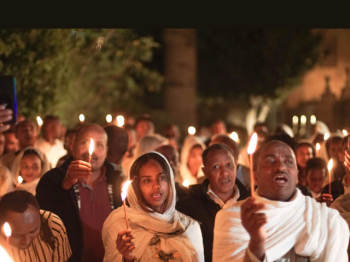 Some 100,000 migrants and asylum seekers in Israel belong to the Catholic Church, a reminder of its universal dimension.
Some 100,000 migrants and asylum seekers in Israel belong to the Catholic Church, a reminder of its universal dimension.
Father Schnabel, could you tell us who the people belonging to your Vicariate are?
We are the Vicariate for Migrants and Asylum Seekers. We are the most international of the Latin Patriarchate Vicariates because we are in charge of all the Catholics who do not have the citizenship of one of the countries of the Latin Patriarchate. So, we are working with migrants and asylum seekers from the Philippines, India, Sri Lanka, China, Ukraine, Romania, Poland, and both English and French-speaking Africa, Latin America... and it’s a very colourful Vicariate with four rites and many languages. It is very difficult to count numbers but we could say we gather about 100,000 sisters and brothers.
There is a difference in the status of these people: some people are legally here while some other people are not. Can you explain this concept further?
Our sisters and brothers live very different situations. Some of them are legally in the country. These are migrant workers mostly from the Philippines, India and Sri Lanka who through agencies came here working in the fields of caregiving, agriculture or construction work. But, for example, if one of these people – and we are speaking mostly about women (95%) – give birth, she immediately becomes illegal.
Another example is the work visa that expires automatically if the employer dies. This means that so many of them – although they arrived legally – no longer have this legal status.
Then we have also some migrant workers who came here as pilgrims, but didn’t return home, stayed here and tried to find their luck. They are often employed in the cleaning sector.
Finally, we have the asylum seekers: this is the smallest group. These are people from Eritrea and Northern Ethiopia. They really try to escape from hunger, bloodshed and war, but the borders are closed – and therefore it is a shrinking phenomenon – while the migrant workers represent a rapidly growing phenomenon.




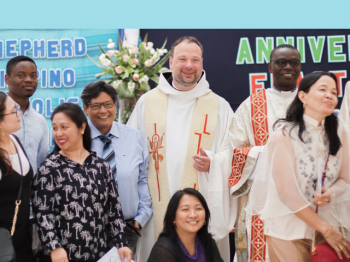
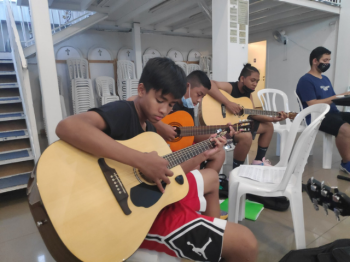 Young people are welcomed within the activities organized by the Vicariate for Migrants.
Young people are welcomed within the activities organized by the Vicariate for Migrants.
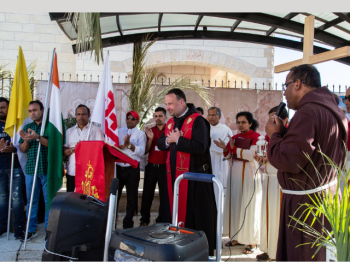 Father Nikodemus Schnabel's team.
Father Nikodemus Schnabel's team.
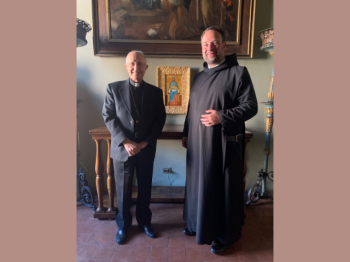 Father Schnabel arrived at Palazzo della Rovere to personally thank Cardinal Filoni for the support the Order gives to the pastoral work carried out by the Vicariate he heads in Israel.
Father Schnabel arrived at Palazzo della Rovere to personally thank Cardinal Filoni for the support the Order gives to the pastoral work carried out by the Vicariate he heads in Israel.